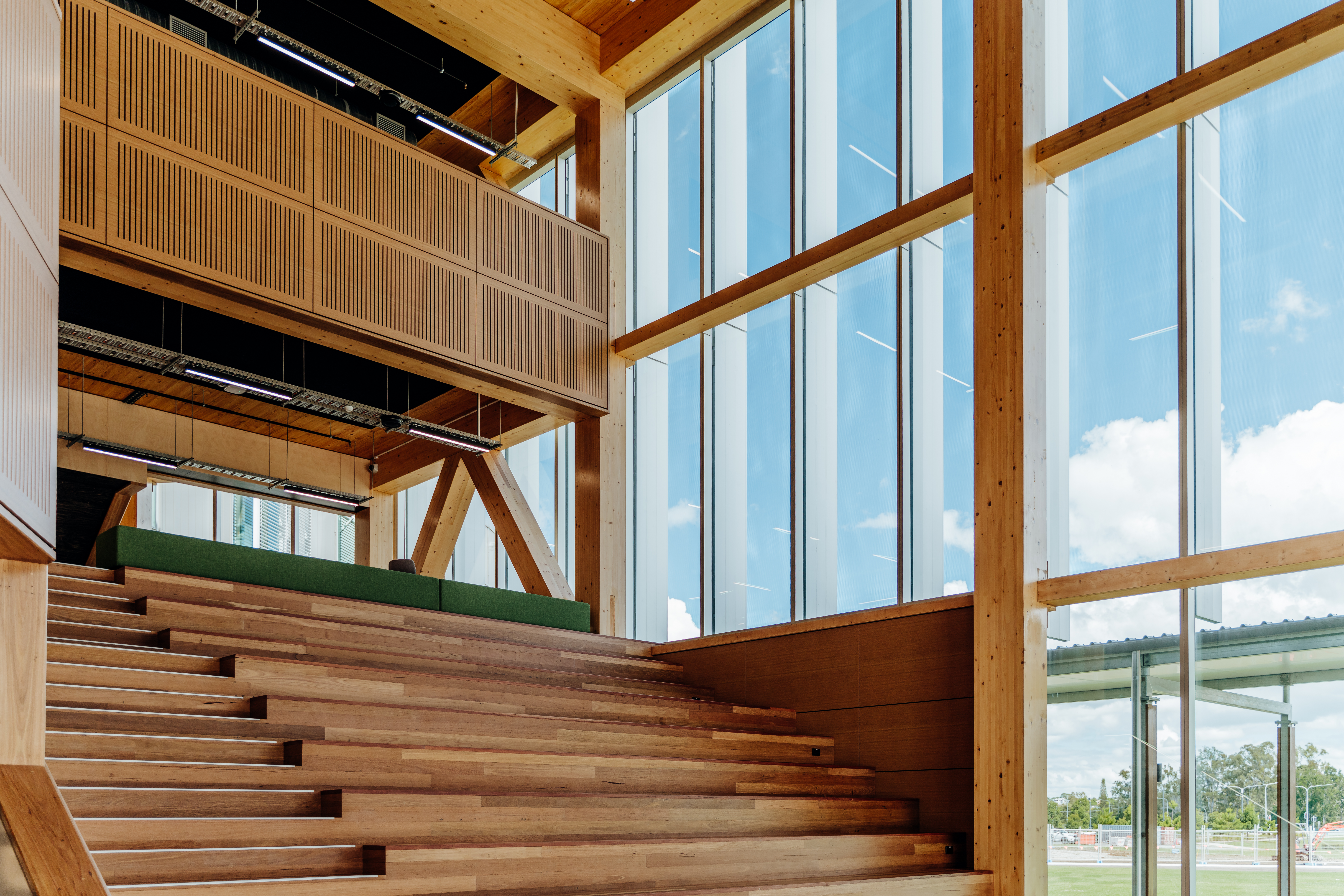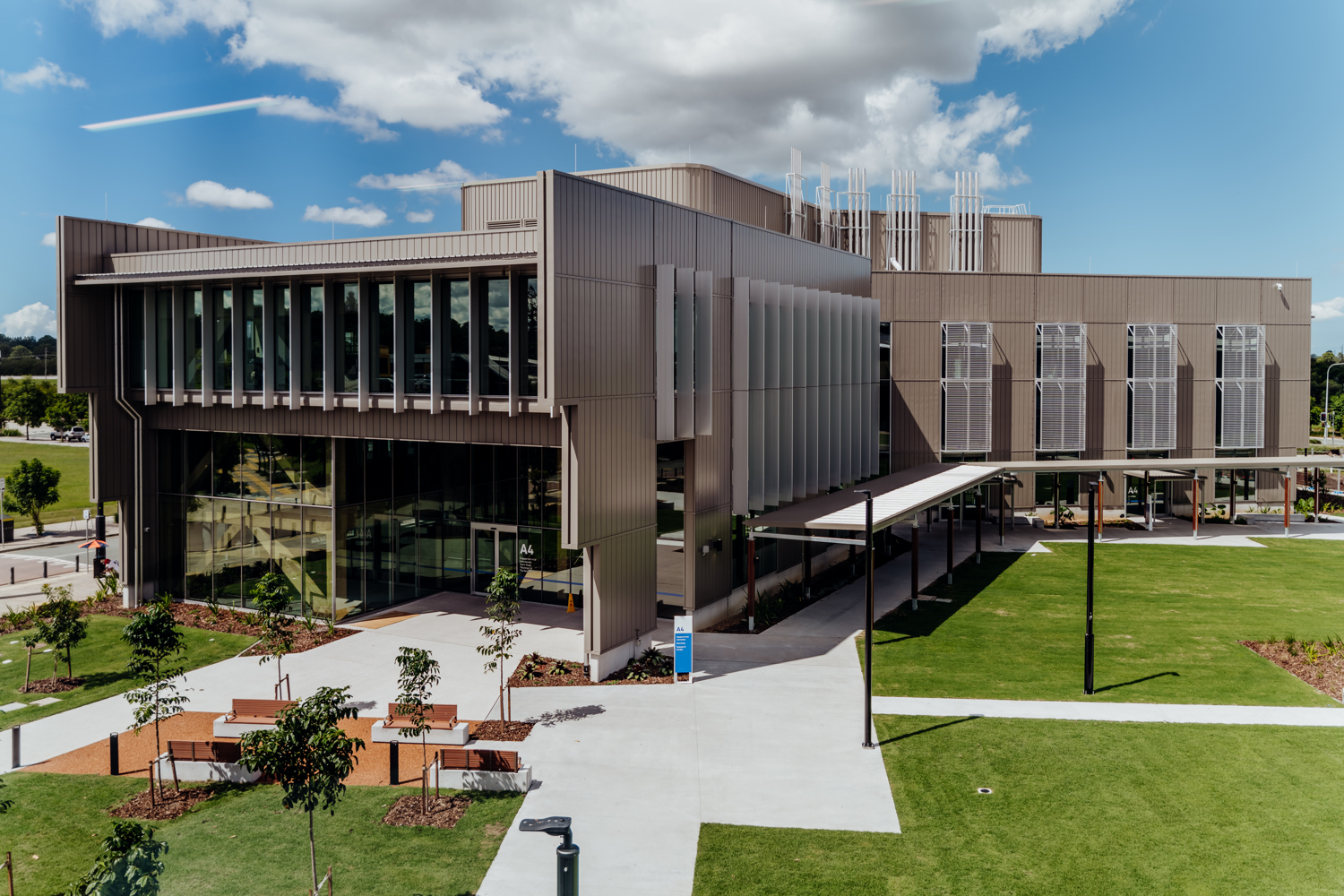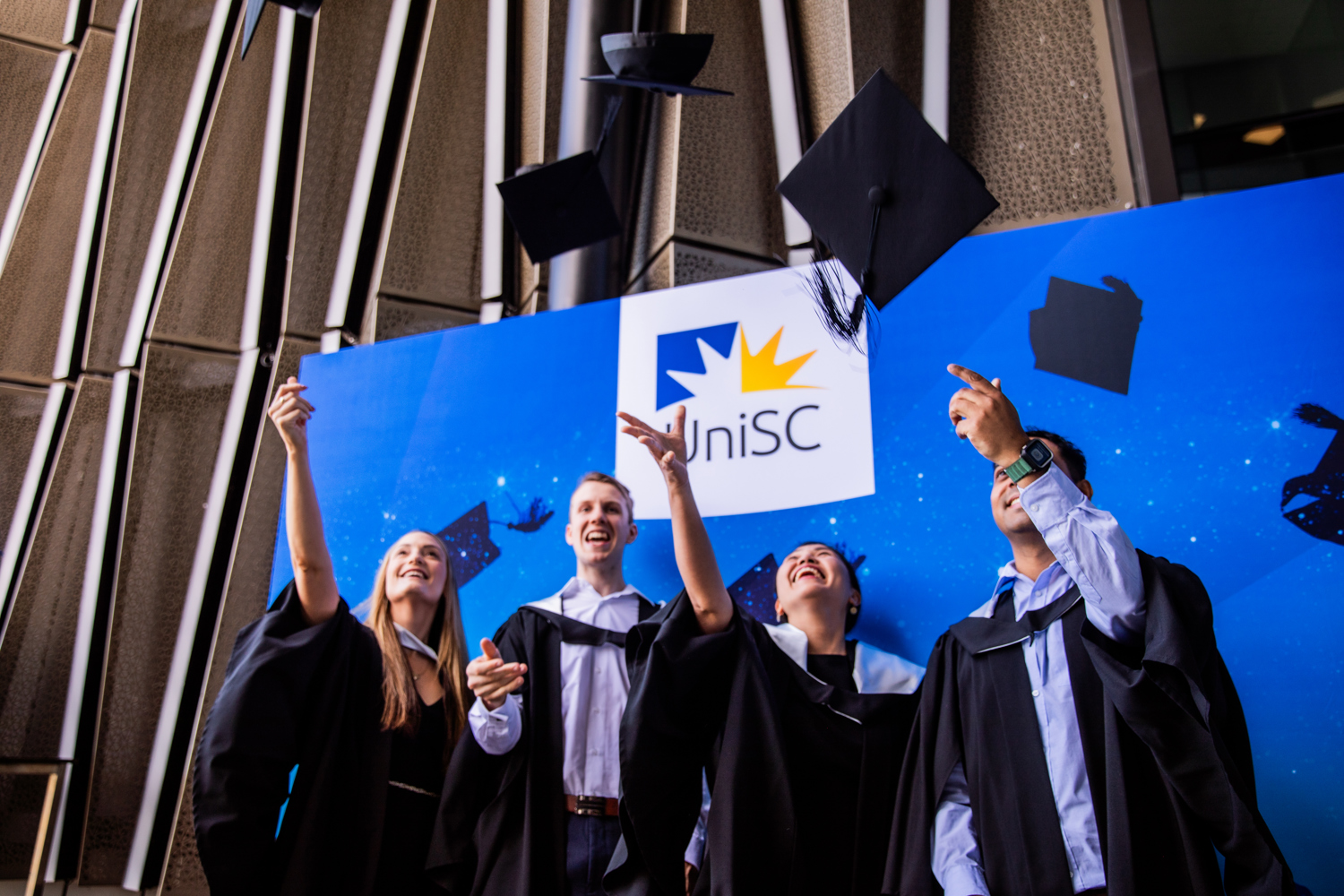For Australia to achieve long-term prosperity, we must transform how we fund and operate our universities.
By aiming to raise attainment rates from 60 percent to 80 percent of the workforce by 2050, we need to dismantle barriers that block individuals from disadvantaged backgrounds from considering university. And we need to actively support their studies to successful completion, equipping them with the necessary skills to transform their lives and have an impact on the communities they live in.
The transformative power of higher education
The Minister for Education has lauded the transformative power that higher education can have on people who reside in the outer suburbs of our major cities, which we know have much lower university attainment levels than inner city areas. In many cases those rates are on par with regional and rural locations.
This week UniSC unveils the second stage of the Moreton Bay campus, expanding high quality education, research facilities and services for a community with one of the lowest higher education participation rates in the country.
Without a national university infrastructure fund to finance this new campus in an area of obvious need, the University’s $240 million investment has been a brave and bold commitment to serve this community.
With close to half a million residents, this city just 60kms from Brisbane has tertiary participation rates significantly lower than state or national averages. The higher education participation rate in Moreton Bay has lifted from 9.3 percent to 11.4 percent over the last two censuses, but lags behind the Brisbane rate of 24.7 percent and the national average of 15.4 percent.
Serving the community’s needs
UniSC Moreton Bay was the first greenfield Australian university campus to open in 20 years, and we have focused on serving the community’s needs, in close partnership with the City of Moreton Bay and the region’s business and industry sectors. As the first occupant of the Mill at Moreton Bay precinct, UniSC will be integral to a growing ecosystem supporting one of the fastest growth regions in Australia through education, employment and lifestyle.
Our research at Moreton Bay is already delivering local benefits, ranging from researching the biology and ecology of sharks and dolphins in the bay, to exploring Australian white ibis urban ecology and management, to building entrepreneurial talent, resilience, economic development and reputation in this region.
Opening in 2020 with just over 1,500 students, our Moreton Bay campus has grown to more than 4,700 students in four years. It took our foundation campus at the Sunshine Coast twice as long to reach that number of students and we are on track to more than double the growth at our Moreton Bay campus in the next ten years.
A contemporary campus for Moreton Bay
Over 68 percent of our enrolments at this campus live in the City of Moreton Bay, indicating there is significant latent demand and aspiration to study in outer urban regions like this. By investing in contemporary campus infrastructure and services, along with the high quality of learning and teaching that UniSC is known for, we are providing a local presence and focus for raising participation and attainment of higher education qualifications in this region.
Almost a quarter of our students at Moreton Bay last year were from low socio-economic backgrounds, and more than 40 percent were the first in their family to attend university. Importantly, a pathway into university through the Tertiary Preparation Pathway enabling program now accounts for over 18 percent of students at this campus.
Raising higher education attainment at Moreton Bay does more than just improve the lives of those who gain the qualifications. A significant skills shortage of teachers in the Moreton Bay region is predicted within the next decade and more than half of these teachers currently live outside the region. So, by building a great new campus on the doorstop delivering quality teaching degrees, benefits will be returned to the individuals who graduate, the students they teach, the economy they live and work within, and the community they help build.
We know that on average seven in ten graduates who study in the regions stay there to work and live. Over 90 percent of domestic undergraduate students from UniSC Moreton Bay were employed within four months of graduating. But the power of higher education to transform lives is priceless.
Leaving school before year 9, Moana Krause’s old job of cleaning soil laboratories for a large mining company saw her daydreaming of becoming a scientist one day, even though she believed university was not for her - it was only for young, high-achieving school leavers.
But she broke through this mindset and attended a UniSC Equip workshop that helped her explore study options, build skills and confidence to step up her career and study goals.
Next, she completed a semester of UniSC’s Tertiary Preparation Pathway that completely transformed her perspective on achieving a university degree. She is now pursuing an Environmental Science degree at UniSC Moreton Bay, aiming to become a research scientist focused on biotechnology applications in sustainable agriculture and aquaculture, to bolster future food security.
This is the transformative power of higher education, and the return on our investment in Moana will pay enormous dividends for years to come – benefiting her, her family and our whole community.
Media enquiries: Please contact the Media Team media@usc.edu.au



